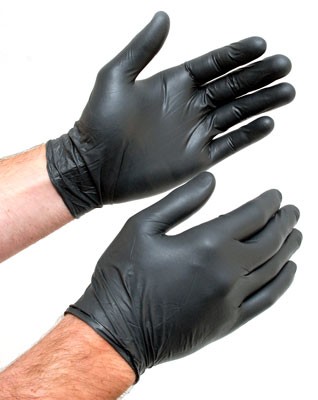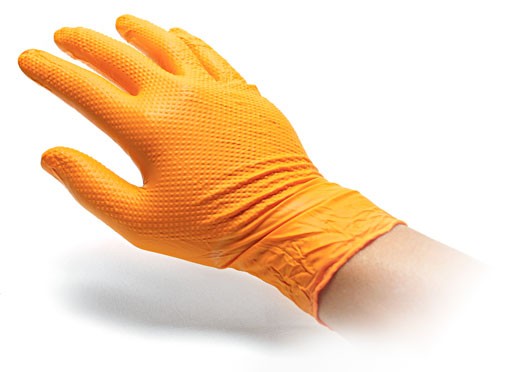Everyone, I'd like to emphasize extreme caution with detailing during this time, not only from a liability standpoint but from a health one as well. This virus spreads easy as it can be transmitted by those who are asymptomatic. Every day more and more information comes out and, from what I've been following in some health publications/journals, that our understanding of the virus is changing (this is good because we are understanding more).
Cleaning vehicles is NOT an essential business (not what I wanted to say nor what I wanted to hear...trust me)
unless you know how to
properly sanitize around parameters of SARS-COV-2. The TL/DR of this is most of us detailers do not have the tools, protection, and chemicals needed to combat SARS-COV-2. I'm not a doctor/epidemiologist/nurse (nor do I play one on TV) but I've done some basic research (included) and plea with you to protect your health. Here's just a few things to support my position.
As of the time of this writing, the CDC (direct from them) says with regard to cleaning in hospitals, "EVS (Environmental Sanitation) personnel should refrain from entering the vacated room until sufficient time has elapsed for enough air changes to remove potentially infectious particles (more information on clearance rates under differing ventilation conditions is available). After this time has elapsed, EVS personnel may enter the room and should wear a gown and gloves when performing terminal cleaning. A facemask and eye protection should be added if splashes or sprays during cleaning and disinfection activities are anticipated or otherwise required based on the selected cleaning products." So first, you'd need to air a vehicle out with sufficient movement (also filtration because blowing contaminated air out does no good) then you need to wear the proper PPE to prevent getting the virus on you. Because we, "roll around in it," so to speak, when detailing an interior there's a chance of transferring the virus to our bodies/clothes. More reading can be found here:
Healthcare Infection Prevention and Control FAQs for COVID-19 | CDC
Steaming, so far, best as I can tell from my research that led me to the conclusion that I should not detail during this time, is that steam can cause the
active virus to leave a surface and become airborne. Steaming would be considered an "aerosol generating procedure," and requires an N-95 respirator, gloves, eye protection, and a gown (in our case we would need coveralls) that (one could draw an assumption) would protect from 50 nanometers up. This measurement is based off the National Institute of Health research (found here:
Supramolecular Architecture of Severe Acute Respiratory Syndrome Coronavirus Revealed by Electron Cryomicroscopy). I have not found a medical study that displays the death of SARS-COV-2 through steam yet. I am awaiting a call back from an epidemiologist to receive guidance on where to find data pertaining to this.
In the mean time, my
personal conclusion is based off the current data posted to the WHO website that states, "Heat at 56°C kills the SARS coronavirus at around 10000 units per 15 min (quick reduction)." So, depending on the concentration, you would need one hundred thirty six degree Fahrenheit concentrated for 15 minutes to make a significant inactivation shot. I know my steamer puts out a lot of pressure, so while one could expect the 250 degree steam to create an "instant kill" in its direct high heat path, the pressure and rapid cooling as you move away from the nozzle could "spray" the still active virus back into the air for you to pick up and carry (or worse, inhale).
Well, what about ozone? Ozone (O3) has a prospect for letting that third oxygen molecule "breach" the virus protein wall and enter causing the virus unable to replicate. This is actually a thing and is possibly the
only non chemical fight detailers would have against SARS-COV-2. There is just one problem, how long do you ozone the vehicle and how do you
guarantee that you effectively neutralized the virus in its entirety? There is available data to show that SARS-COV-1 is susceptible to ozone but not all viruses become inactive at the same rate and concentration and SARS-COV-2 is already showing some limited properties different that its predecessor. When it comes to how long it takes to ozone inactivate this virus I have not been able to find data from medical sources. There are some manufactures of ozone products who will draw conclusions that it will work similar to SARS-COV-1 but I again have not seen hard data.
Cleaning chemicals can work, and some of them are in your home! However, there is one catch, these products do not produce instant inactivation of the virus. For example, Clorox Wipes (if you can find them) need four minutes of contact time. During this four minutes, the surface needs to kept wet with product. "Instant kill," products are in short supply as our front line health care workers are using them to fight the virus (and they sure need them). You would have to find a product (see this list:
List N: Disinfectants for Use Against SARS-CoV-2 | Pesticide Registration | US EPA) then make sure it is safe for use on the materials on our vehicle interiors (leather, glass, and touch screens are the principal mediums that come to mind). As of this time, no product in the Autogeek antibacterial section are listed for fighting SARS-COV-2.
I love detailing and was excited to really push my business forward this spring as the supplemental income is needed but it is not worth the risk to myself, my family, my community, and someone expecting their vehicle to be sanitized. For the time being we need to do our part and stay home to slow the spread and
make ready for recovery when this virus passes.
One final note, a very reputable detailer, Renny Doyle has himself even come out with similar thoughts (check out his video, it confirmed my thoughts about detailing during this time) and my research I was able to do backs up his conclusions. Please stay healthy everyone, this will pass and we will prevail.



